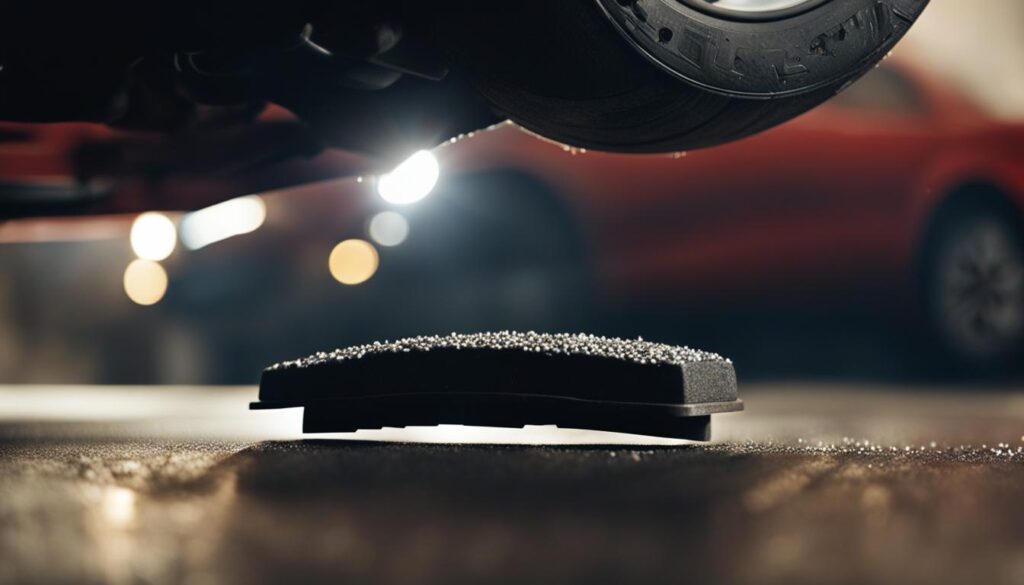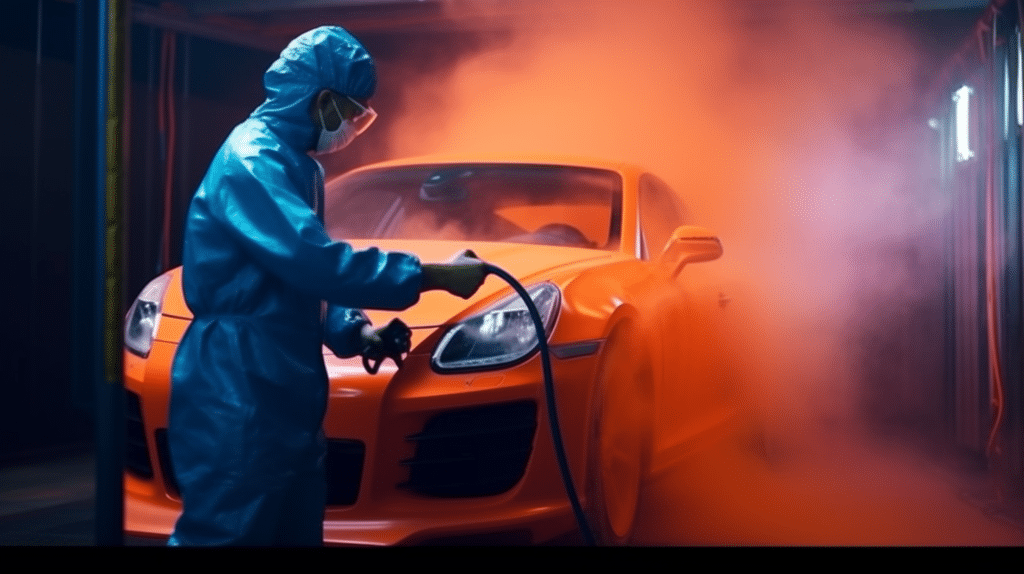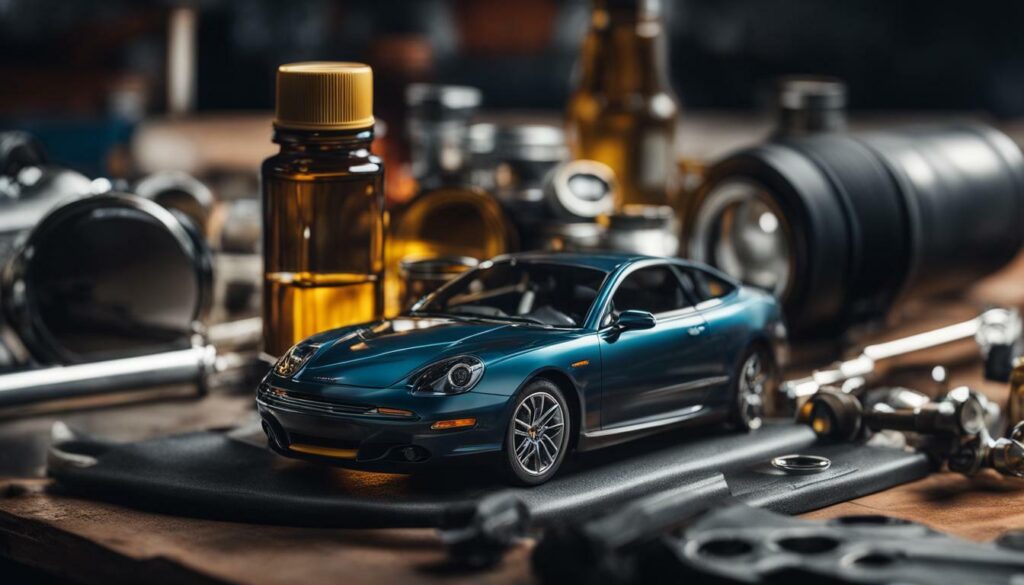Identifying the Causes of Grinding Noise When Reversing
One of the more concerning sounds you can hear when driving is a grinding noise when reversing. This noise can be an indication of a serious mechanical issue. In this section, I will discuss the common causes of grinding noise when reversing. By understanding the root cause, you can better diagnose and address the problem.
Transmission Issues
A common cause of grinding noise when reversing is transmission issues. If the transmission has low or contaminated fluid, it can make a grinding noise when reversing. Additionally, worn-out gears or a failing transmission can also lead to this noise. If you suspect the transmission is the root cause of the issue, it’s crucial to seek professional assistance immediately.
Brake Problems
Another potential cause of grinding noise when reversing is brake problems. If the brake pads are worn out or loose, they can cause a grinding noise when you apply the brakes, including when reversing. Additionally, if the brake rotors are warped, this can also lead to a grinding noise. Regular inspection of brake components can help avoid these issues.
Other Mechanical Components
Finally, other mechanical components can lead to grinding noise when reversing. Loose or damaged wheels bearings, differential problems, or worn CV joints can all cause this noise. These components are crucial to the proper functioning of your vehicle, and you should seek professional help if you suspect any of them to be the cause of the problem.
In conclusion, there are several potential causes of grinding noise when reversing. It’s essential to identify the root cause of the issue to avoid further damage. Regular inspection of your vehicle’s components can help prevent these problems from occurring. In the next section, we will discuss possible solutions for grinding noise when reversing.
Solutions for Grinding Noise When Reversing
If you have been experiencing grinding noise when reversing your vehicle, there are several solutions you can explore to fix this issue. Here are some potential solutions to consider:
Check the Transmission Fluid
The first step is to check the transmission fluid level. Low transmission fluid can cause grinding noise in reverse gear, especially in automatic transmissions. Locate the transmission dipstick under the hood and check the fluid level. If it’s low, add the recommended type of fluid for your vehicle until it reaches the appropriate level.
Inspect the Brake Pads
Worn-out brake pads can also cause grinding noise when reversing. Inspect the brake pads to ensure they are not worn beyond their limit. Squealing or metallic sounds indicate that the brake pads need replacement. This can be a DIY task for some people, but if you are unsure, take your vehicle to a professional mechanic.
Adjust the Parking Brake
The parking brake may also need adjusting if it’s too tight. If the parking brake is not releasing fully, it can cause grinding noise when backing up. This is another potential DIY fix, but if you are unsure, seek help from a mechanic.
Seek Professional Assistance
If you have tried the above solutions and the grinding noise persists, it’s time to consult a professional mechanic. They can perform a thorough inspection to identify the root cause of the problem and provide an appropriate solution. It may be due to a faulty transmission, differential, or any other mechanical component, which requires expert attention.
By following these steps, you can effectively address the grinding noise when reversing and ensure a smoother driving experience. Remember, regular vehicle maintenance can prevent future issues and save you from costly repairs.
Steps to Take to Fix Grinding Noise When Backing Up
Grinding noise when backing up is not only irritating but can also be a cause for concern. If you’re experiencing this issue, it’s essential to address it as soon as possible to avoid potential safety hazards. Here are some steps you can take to fix grinding noise when backing up:
- Inspect the parking brake: One of the common reasons for grinding noise when backing up is the parking brake. Check if it’s fully released and not causing any drag on the wheels. If it’s misadjusted, adjust it accordingly and test if the noise has been eliminated.
- Check the wheel bearings: Worn-out or damaged wheel bearings can cause grinding noise when backing up. Inspect them for any signs of wear or damage, and replace them if required.
- Inspect the brake pads: Worn-out brake pads can cause metal-to-metal contact, leading to grinding noise. Inspect the brake pads for wear and replace them if necessary.
- Check the transmission fluid: Low or contaminated transmission fluid can cause transmission-related grinding noise. Check the fluid level and quality, and add or replace it if required.
- Seek professional assistance: If the grinding noise persists even after taking the above steps, it’s best to consult a professional mechanic. They can diagnose the issue and provide a suitable solution.
By following these steps, you can fix grinding noise when backing up and ensure a smooth and safe driving experience.
Exploring Grinding Noise in Reverse Gear and Automatic Transmissions
Grinding noise in reverse gear is a common issue for drivers, especially those with automatic transmissions. This noise can be worrying, and often indicates a problem with the transmission or other mechanical components. To better understand this issue, let’s explore how automatic transmissions work and the potential causes of grinding noise in reverse gear.
How Does an Automatic Transmission Work?
Automatic transmissions use complex systems of gears, clutches, and hydraulic fluids to shift gears automatically without the driver’s input. When you shift the car into reverse gear, the transmission engages a different set of gears to rotate the wheels in the opposite direction. However, if any component of the transmission system fails or wears down, it can lead to grinding noise in reverse gear.
What Causes Grinding Noise in Reverse Gear?
There are several potential causes of grinding noise in reverse gear. One common issue is low transmission fluid, which can lead to insufficient lubrication and cause the gears to grind against each other. Similarly, worn-out clutches or broken gears can also cause grinding noise.
Another possible cause is a damaged or worn-out wheel bearing. The wheel bearings help the car’s wheels rotate smoothly, and if they become worn or damaged, it can cause grinding noise when backing up. The parking brake could also be dragging, causing the brake pads to grind against the rotors.
How to Fix Grinding Noise in Reverse Gear?
The solution to grinding noise in reverse gear depends on the root cause of the problem. If low transmission fluid is the issue, adding more fluid can help. However, if there is a more significant problem with the transmission or other mechanical components, it is best to seek professional assistance.
For issues with worn-out clutches or broken gears, a mechanic may need to replace the damaged parts. In the case of damaged wheel bearings or brake pads, a mechanic will need to inspect and replace them as well. Additionally, adjusting the parking brake can help prevent dragging and grinding noise.
Conclusion
Grinding noise in reverse gear can be a concerning issue for drivers, but understanding the potential causes and solutions can help address the problem effectively. By inspecting the transmission fluid, wheel bearings, and brake pads, you can diagnose the root cause of the grinding noise and take action to fix it. Seeking professional assistance when needed is always advisable to ensure a safe driving experience.
Summary and Key Takeaways
In conclusion, identifying and resolving the grinding noise when reversing can be crucial for maintaining the safety and performance of your vehicle. As we discussed in this article, the causes of the noise can vary from transmission problems to brake issues or other mechanical faults. It is important to diagnose the root cause to determine the proper course of action.
By following the steps outlined in this article, you can effectively troubleshoot and fix the grinding noise when reversing. The solutions may involve checking the transmission fluid, inspecting the brake pads, or consulting a mechanic for professional assistance. Remember, taking prompt action can prevent the noise from becoming a more serious and costly issue.
Key Takeaways:
- Grinding noise when reversing can indicate problems with the transmission, brakes, or other mechanical components of your vehicle.
- Checking the transmission fluid, inspecting the brake pads, and seeking professional assistance are some of the potential solutions for addressing the noise.
- Follow a step-by-step guide to address the problem and minimize the noise.
- Understanding the connection between automatic transmissions and grinding noise in reverse gear can provide insights into troubleshooting and resolving the issue.
Remember to prioritize the safety of your vehicle and passengers by addressing the issue as soon as possible. With patience and persistence, you can successfully resolve any grinding noise when reversing and ensure a smoother driving experience.
FAQ
What causes a grinding noise when reversing?
The grinding noise when reversing can have various causes, including issues with the transmission, brakes, or other mechanical components. It is important to diagnose the specific problem to address it adequately.
How can I solve the grinding noise when reversing?
There are several possible solutions for the grinding noise when reversing. You can start by checking the transmission fluid, inspecting the brake pads, or seeking professional assistance to ensure a smoother driving experience.
What steps should I take to fix the grinding noise when backing up?
To fix the grinding noise when backing up, you can follow a step-by-step guide. Adjusting the parking brake, inspecting the wheel bearings, or consulting a mechanic are some actions that can help address and minimize the noise.
Are grinding noises common in reverse gear and automatic transmissions?
Grinding noises in reverse gear and automatic transmissions can occur due to various factors. Understanding how the transmission system works and troubleshooting the specific issues can help resolve the problem.
What are the key takeaways regarding grinding noise when reversing?
It is important to address the grinding noise when reversing for a safer driving experience. By understanding the causes, applying troubleshooting techniques, and exploring potential solutions, you can effectively resolve this concerning issue.




